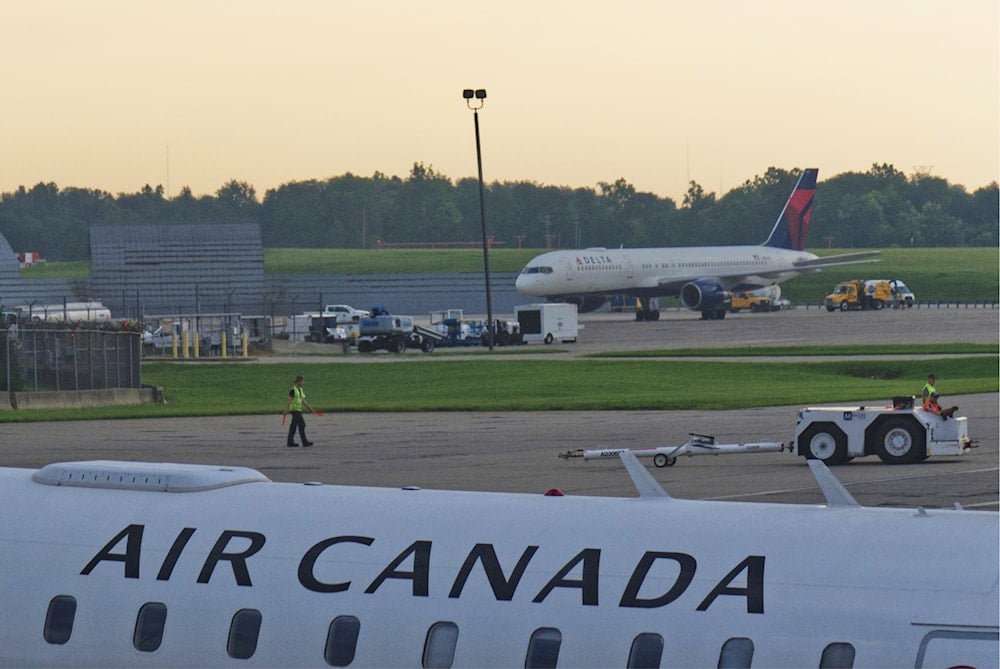Air Canada strike grounds fleet as cabin crew reject arbitration
Air Canada's fleet is grounded as flight attendants defy work orders, demanding pay for all work hours.
-

An Air Canada Express Bombardier CRJ900 operated by Jazz Aviation LP sits on the tarmac at Cincinnati/Northern Kentucky International Airport outside of Hebron, Kentucky, on August 15, 2025. (AP Photo/Jon Gambrell)
Air Canada's entire fleet remained grounded on Monday morning after striking flight attendants rejected a government-backed order to return to work. The Canadian Union of Public Employees (CUPE), representing 10,000 cabin crew members, called on the airline to resume negotiations amid growing public support for their demands.
The airline, a member of the global Star Alliance, typically transports 130,000 passengers daily. It had planned to gradually resume operations on Sunday evening, following a Canada Industrial Relations Board (CIRB) directive mandating a return to work and binding arbitration. However, CUPE refused, deepening the standoff with the Canadian government.
CUPE emphasized the need for a negotiated solution, arguing that binding arbitration would ease pressure on Air Canada to reach a fair agreement. The union described the CIRB order as unconstitutional and reiterated its willingness to return to the table for meaningful talks.
Striking flight attendants are demanding better wages and compensation for all hours worked, including time spent on the ground assisting passengers during boarding. Currently, they are only paid when aircraft are in motion, a policy that has drawn criticism from the public and industry observers alike.
The dispute highlights broader frustrations among flight attendants in both Canada and the United States, many of whom are advocating for compensation structures that reflect their full range of responsibilities. CUPE’s stance has gained traction online, with many Canadians expressing solidarity on social media.
Over the weekend, frustrated travelers at Toronto Pearson International Airport voiced confusion over the status of their flights. Francesca Tondini, a 50-year-old Italian national waiting at the terminal, said she supported the workers. "They are right," she said with a smile, pointing at the striking attendants.
Government’s response: Legal action or legislation?
The government has several options to address the ongoing labor dispute. These include seeking court enforcement of the CIRB order, requesting an expedited hearing, or introducing legislation. However, the minority government would require backing from opposition parties in both chambers of Parliament, currently on recess until September 15.
Legal experts have noted that the government must tread carefully. Dionne Pohler, professor of dispute resolution at Cornell University’s Industrial and Labor Relations School, emphasized that "the government will be very reticent to be too heavy-handed because in Canada the Supreme Court has ruled that governments have to be very careful when they take away the right to strike, even for public sector workers that may be deemed essential."
Encouraging continued negotiations remains a potential path forward, Pohler added. As of Monday, the government had not issued a formal comment on the situation.

 3 Min Read
3 Min Read










